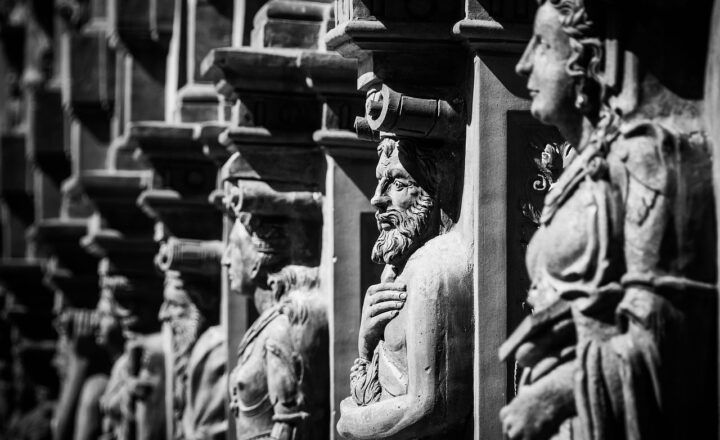
The evolution of government from monarchy to democracy represents one of the most significant transformations in the political history of humanity. Monarchies, characterized by the concentration of power in a single individual or a family, have dominated human societies for millennia. However, the rise of democratic systems, where citizens participate in governance, has reshaped not only political institutions but also the very fabric of society. In this article, we will explore this monumental change, its causes, its implications, and its continuing evolution in the modern world.
1. Understanding Monarchy
Monarchy is one of the oldest forms of government, dating back thousands of years. In a monarchy, power is typically hereditary, where kings and queens inherit their positions from their ancestors. Monarchies can be absolute or constitutional:
- Absolute Monarchy: The monarch has almost complete control over the government and is not bound by a constitution or laws. Examples include the reign of Louis XIV in France or the current monarchy in Saudi Arabia.
- Constitutional Monarchy: The monarch’s powers are restrained by a constitution or laws, allowing for a form of parliamentary governance. Examples include the United Kingdom and Sweden.
While monarchies can provide stability and continuity, they often lack accountability and responsiveness to the needs of the populace, leading to discontent and the demand for change.
2. The Seeds of Change: Factors Leading to Democracy
The transition from monarchy to democracy did not occur overnight. Several key factors contributed to the decline of absolute monarchies and the rise of democratic governance:
- The Enlightenment: Enlightenment thinkers like John Locke, Montesquieu, and Jean-Jacques Rousseau advocated for ideas about individual rights, separation of powers, and the social contract, challenging the divine right of kings.
- Economic Changes: The rise of the middle class, industrialization, and capitalism shifted power dynamics. As more individuals gained wealth and education, they demanded greater participation in governance.
- Social Movements: Various social movements, including those advocating for civil rights, suffrage, and labor rights, fueled the desire for democratic reforms. Notably, the abolition of slavery and women’s suffrage movements emphasized the demand for equality and representation.
- Revolutions: Revolutions, such as the American Revolution (1776) and the French Revolution (1789), were pivotal in dismantling monarchic systems and establishing democratic frameworks. These revolutions inspired countless others across the globe, revealing the practical possibility of self-governance.
3. The Establishment of Democratic Governance
As societies transitioned from monarchy to democracy, several key features emerged:
- Universal Suffrage: The right to vote became a crucial aspect of democratic governance, expanding from wealthy, land-owning males to include broader segments of society, regardless of class, race, or gender.
- Rule of Law: Democracies emphasize the importance of laws governing all citizens, including those in power, contrasting with the arbitrary rule often associated with monarchies.
- Separation of Powers: The division of government into branches (executive, legislative, and judicial) is designed to prevent the concentration of power and promote accountability through checks and balances.
- Political Pluralism: Modern democracies encourage multiple political parties and viewpoints, allowing citizens to choose representatives who best reflect their interests and values.
The establishment of democratic governance increased responsiveness to the needs of citizens and provided a structure for allowing political change through peaceful means.
4. The Global Spread of Democracy
Despite the initial establishment of democracy in Western societies, the global spread of democratic ideals and practices has been both uneven and contested. Regions such as Latin America, Asia, and Africa have experienced various waves of democratization and authoritarian backlash.
International organizations like the United Nations and various NGOs promote democracy as a pathway to enhanced human rights and development, emphasizing the importance of free and fair elections, transparency, and civic engagement. Countries that embrace democratic principles often see significant improvements in socio-economic conditions and human welfare.
However, democracy often faces challenges:
- Authoritarianism: Some nations revert to authoritarian practices, curtailing freedoms and suppressing dissent, resulting in a struggle for democratic norms.
- Populism: The rise of populist leaders and movements that appeal directly to the people can threaten established democratic institutions by undermining checks and balances.
- Globalization: Global economic and political forces may disrupt local governance, posing challenges to democratic principles and citizen involvement.
5. Modern Democracy: Innovations and Challenges
In the 21st century, democracies continue to evolve, embracing innovations that aim to enhance citizen participation and government accountability:
- Digital Democracy: The rise of technology facilitates greater engagement through social media and online platforms, allowing citizens to mobilize and voice their opinions more freely. However, it also raises concerns about misinformation and online harassment.
- Participatory Governance: New models encourage citizens to participate directly in decision-making processes, from local budgets to policy development, fostering a more inclusive political culture.
- Climate and Social Justice: Modern democracies face pressing issues like climate change and social inequality, necessitating governance that addresses these challenges while remaining inclusive and representative.
The road ahead for democracy is filled with both opportunities and challenges. With evolving political landscapes and the increasing complexity of global issues, the fight to sustain and enhance democratic governance is more crucial than ever.
Conclusion
The transition from monarchy to democracy represents a profound shift in human governance, characterized by a push for accountability, representation, and citizen engagement. As new societal challenges unfold, the principles of democracy will continue to adapt, ensuring governance that reflects the will and needs of the people. Moving forward, the commitment of citizens to uphold democratic values will determine the health and longevity of democratic systems worldwide. It is through this sustained effort that societies can hope for enduring freedom and justice.







